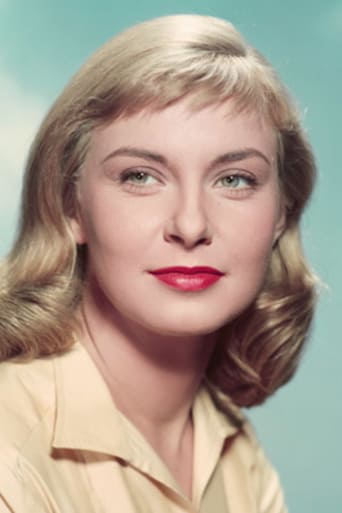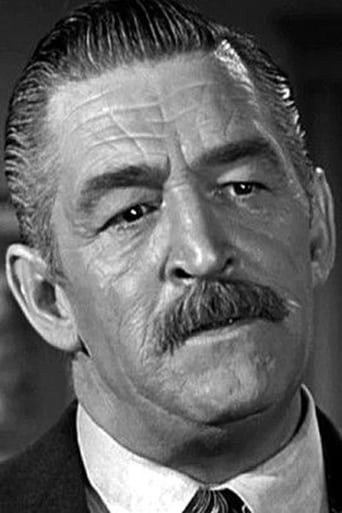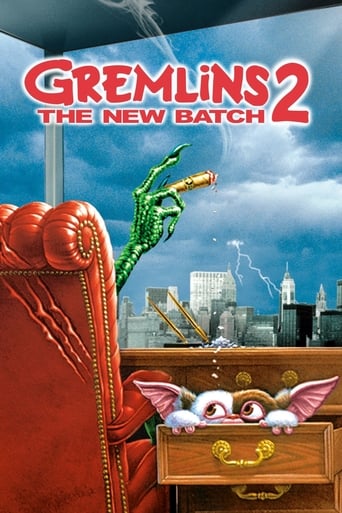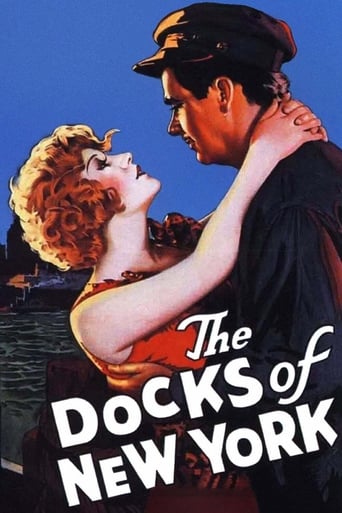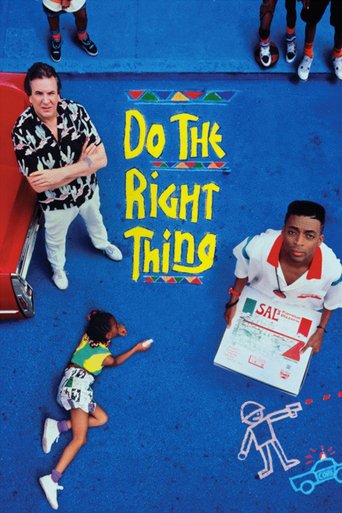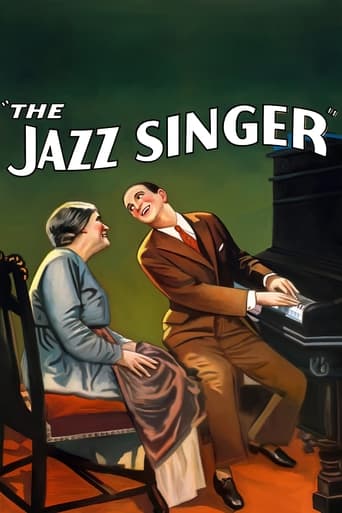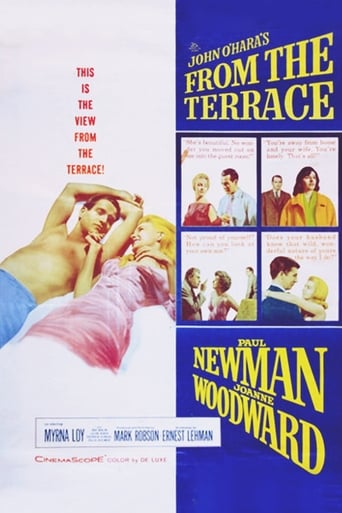
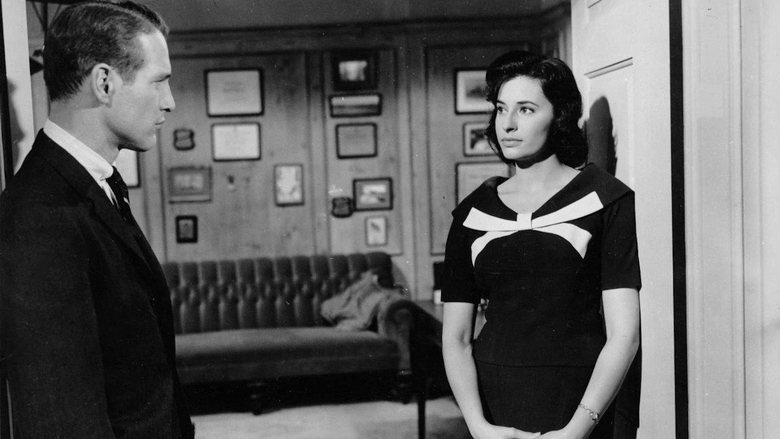
From the Terrace (1960)
Alfred Eaton, an ambitious young executive, climbs to the top of New York's financial world as his marriage crumbles. At the brink of attaining his career goals, he is forced to choose between business success, married to the beautiful, but unfaithful Mary and starting over with his true love, the much younger Natalie.
Watch Trailer
Cast
Similar titles

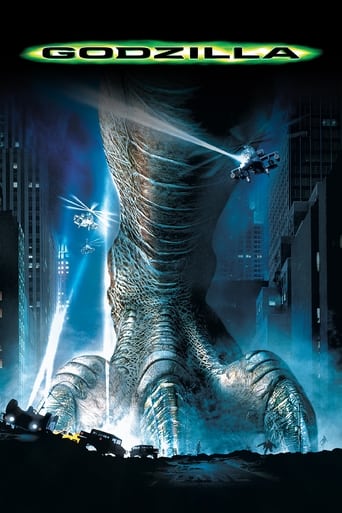
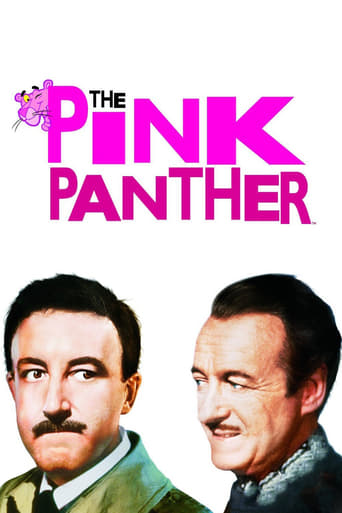

Reviews
Overrated and overhyped
A brilliant film that helped define a genre
As somebody who had not heard any of this before, it became a curious phenomenon to sit and watch a film and slowly have the realities begin to click into place.
It’s not bad or unwatchable but despite the amplitude of the spectacle, the end result is underwhelming.
"From the Terrace" is an example of a type of the melodrama that Hollywood turned out from the late 1950s to early 1970s. Films such as this and "Peyton Place" of 1957, "Home from the Hill" of 1960, "Breakfast at Tiffany's" of 1961, and others came close to being soap operas. They had the good and the bad, often in the same person or people. The stories were different and usually interesting enough to hold an audience's attention. But the plots were definitely more melodramatic than good drama or story telling. Romance was usually a part of all of them, and most often they were about struggles in marriage, infidelity, family breakups, etc. The usual stuff of soapers, under various genres. This one is a lavish production by 20th Century Fox, based on a novel by John O'Hara. It hits on another theme that was common in the Mid- 20th century – after WW II and Korea. A man, striving to get ahead, becomes a workaholic and in the course neglects his wife. Not all wives are unfaithful to hubby, as is Joan Woodward's Mary St. John. And, not all men wind up unfaithful to their wives as does Paul Newman's David Eaton. Having seen this film when it came out in 1960, as I recall, I might have seen Newman as the poor hero and good guy whose wife dumps on him. But, it's amazing how time and a little maturity yields some wisdom. Because the blame for the breakup of the marriage here is definitely Newman's Eaton. He knew the woman he married, and his ambition and drive led him to forget her. It doesn't excuse her carousing and infidelity, but it shows what led to that. This film probably is viewed as very slow by 21st century audiences. It has some glamorous sets. The cast is very good, especially Joanne Woodward. She was one of the most talented actresses of the 20th century. Paul Newman was a fine leading man in a variety of genres, and a good entertainer. But his acting wasn't anything exceptional. The young Ina Balin won a Golden Globe as the most promising newcomer in 1960. She was in some good movies after this, but her star never quite reached to the heavens. She died at age 52 of a heart problem.Others of the supporting cast are very good. Leon Ames has a fine role as Samuel Eaton and Myrna Loy has a small part as his wife, Martha Eaton. Elizabeth Allen is the flamboyant, brassy rich broad, Sage Rimmington. She plays the part well, and it's the only way to describe her. Patrick O'Neal is Mary St. John's lover on the side. Felix Aymer is very good as David Eaton's boss and the head of the blue blood, Wall Street, and wealthy MacHardie's, James Duncan MacHardie. In an exchange with Eaton, MacHardie articulates a wise philosophy that had guided civilization for centuries. James MacHardie, "There are no grounds for divorce. And if you need my personal theology, infidelity is the lesser sin. I will do anything in my power to prevent a divorce." David Alfred Eaton, "Including condoning infidelity?" MacHardie, "I consider your word 'condoning' disrespectful. I condone none of it. The problem of infidelity is between husband and wife and God. The problem of divorce concerns the whole of civilization. What is marriage? An exchange of vows, a contract. It is my duty to myself and to any man who is working for me to demand that he honor all of his contracts. When you came here, you found out that we always honor our word, even if it means taking a loss." Many of these films, of course, are about well-to-do if not outright filthy rich people. In this film, David and Mary live a high life style. One might wonder where they got the money in their early stage. But, they live and socialize in high society, and among the young rich – two different groups. I don't know how that may resonate with audiences in the 21st century, when most people seem to live as much for fun and entertainment as for family or other things. But back then, the folks who lived the high life were quite distant from the vast majority of people, and they often were the envy of the common man.
Screenplay based on a novel by John O'Hara in 1958. One of a dozen films Paul Newman and Joanne Woodward did as husband and wife. They stayed married until Newman died in 2008. The film cost $3 million and grossed $5 million. So it was major deal in those days but was not a runaway success. There was quite a lot of adult content for the time which was surprising. It was certainly apt for the time but all the concern about divorce makes it a period piece but an accurate period piece. I find all the filming on sets restrictive as I am spoiled by modern location and outdoor shooting. Although it is certainly not a great work. Will give it a solid 7. RECOMMEND
This is one of those movies that I can't pass up when it shows up on cable. I grew up in the 50's and 60's, so movies like this are also a bit of time travel. This time it was TCM. Saw it coming up and had to use the DVR.It is not easy to make a novel into a movie. An average novel would require eight to ten hours of movie--so a mini series is the least. A childhood to maturity novel must be a real challenge. In this case, selecting just a portion of the novel and writing a screenplay around it, in my opinion, worked nicely. Here's what I like about it.Joanne Woodward and Paul Newman. They do good work separately and extraordinary work together. Woodward is believable, especially playing a southerner (which she is not here), but also playing a member of high society in New England. Paul Newman is just a good and versatile actor. The story moves slowly, but not too slowly, and the characters have enough interest to be savored in the quiet moments. Scenes with the early 1950's cars in the forest. Elmer Bernstein's score. The scene where the Eatons meet Natalie in New York. Mary Eaton is wearing a tiara (crown?). The king and queen meeting the king's courtesan. Mary, afterward: "She calls me Mrs. Eaton. You call her Natalie, but she doesn't call you anything."Don't like. Glaring hole in the story. What happened to Eaton Steel and Martha Eaton. Big family owned business and only an alcoholic widow left, and Alfred just goes off to make airplanes? Clearly Samuel Eaton was a hands on manager. Did a middle manager pop in on Mrs. Eaton and say, "I'll take care of the company for you. Don't you worry. Just get a board resolution appointing me as CEO." Or did Alfred shut down the plant in his father's honor and to spite the striking union, with his mother just living off accumulated wealth?And I wonder. Compare the last half of this movie with the AMC TV series "Mad Men", which starts out set at about the same time that this movie is set. Imagine MacHardie coming in to the Sterling Cooper conference room. Compare the morals and mores of Terrace with those of Mad Men. Considering that they were written in times 40 years apart, they fit surprisingly well, don't they?
This is another film which, though a staple on Italian TV over the years, I somehow never bothered with until now (obviously included in my Paul Newman tribute) – mainly because it’s a glorified soap opera of a kind (accentuated by garish color and the Widescreen format) that was prevalent in Hollywood for about a decade, beginning from the mid-1950s.It’s based on a John O’Hara best-seller which, if the trailer is to be believed, was a “sensation” when it emerged; its impact, however, has been heavily diluted in the screen adaptation – not to mention by the passage of time since the film’s release! Still, the result is reasonably entertaining (often unintentionally so in view of the ongoing histrionics) and, thankfully, its hefty 144-minute duration isn’t an excessive burden. Besides, no expense has been spared with respect to production values (director Robson, screenwriter Ernest Lehman – both of whom would memorably reteam with Newman on the delightful Hitchcock pastiche THE PRIZE [1963; still bafflingly M.I.A. on DVD], cinematographer Leo Tover and composer Elmer Bernstein).On the other hand, casting is variable yet surprisingly adequate – this was Newman’s third teaming with wife Joanne Woodward: interestingly, she plays an unsympathetic role (whereas he’s typically brooding), so that the couple’s initially blissful relationship (compromised by his ambitious drive and her own faithlessness with ex-beau Patrick O’Neal) deteriorates and sends Newman into the arms of decent girl Ina Balin…all of which leads to an idealistic ending in which the disillusioned hero gives up his career in favor of true love. Myrna Loy, then, appears briefly at the start in the role of Newman’s perennially soused and whorish(!) mother; ditto Leon Ames as his steel-mill owner father (which Newman abandons after the old man’s death) – fixated on his other, dead son!; Felix Aylmer is an elderly tycoon whose grandson the hero saved from drowning – which wins Newman a position in his firm and later, satisfied by the former’s over-achieving performance, he even goads with a partnership…but the hero turns him down flat!; and Ted de Corsia is atypically featured as Balin’s modest businessman father, whom Newman had been sent by Aylmer to check on.

